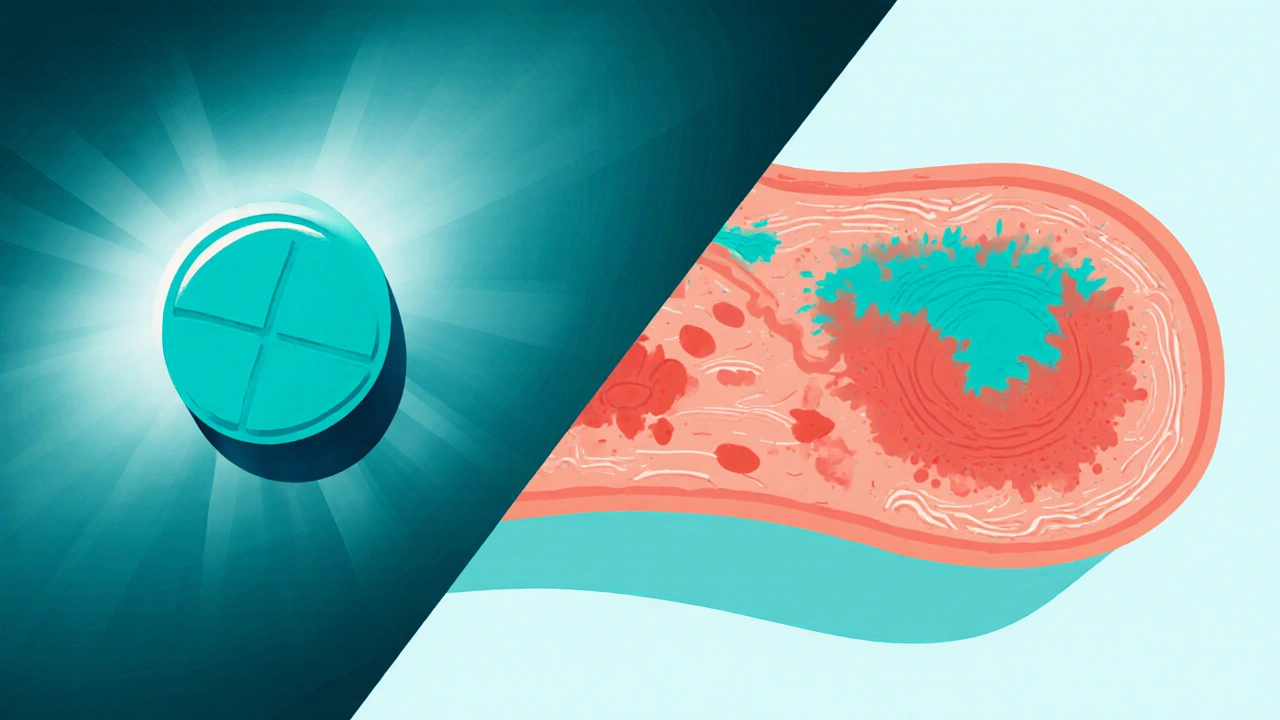Learn how rosuvastatin reduces inflammation, its impact on CRP, heart health benefits, dosing tips, side effects, and what recent studies reveal.
Rosuvastatin Side Effects: What You Need to Know Before Taking It
When you’re prescribed rosuvastatin, a cholesterol-lowering statin drug used to reduce the risk of heart attack and stroke. Also known as Crestor, it works by blocking a key enzyme your liver uses to make cholesterol. It’s one of the most commonly prescribed statins in the U.S. and Europe, not because it’s magic, but because it works—when used correctly. But like all medicines, it doesn’t come without trade-offs. You need to know what those are before you swallow that pill every morning.
Most people take rosuvastatin without major issues, but muscle pain, a frequent complaint among statin users is the biggest red flag. It’s not just soreness—you might feel weakness, cramps, or a deep ache in your thighs or shoulders. If it gets worse or you notice dark urine, stop taking it and call your doctor. That could be a sign of rhabdomyolysis, a rare but dangerous breakdown of muscle tissue that can damage kidneys. Liver problems are another concern. Your doctor should check your liver enzymes before you start and maybe again a few weeks later. It’s not common, but it happens. And if you’re over 65, Asian, or have kidney issues, your risk for side effects goes up. That’s why dosage matters—5mg might be enough for you, not 20mg.
Some people report brain fog or trouble sleeping, though studies aren’t clear if rosuvastatin causes these or if they’re just coincidental. What we do know: it can raise blood sugar slightly, which matters if you’re prediabetic or have type 2 diabetes. It’s not a reason to avoid it—your heart risk is usually higher than your diabetes risk—but you should monitor your glucose. And don’t mix it with grapefruit juice or certain antibiotics like erythromycin. Those combos can spike drug levels in your blood and increase side effects. You’re not alone in worrying about this. Millions take statins. Most do fine. But knowing the signs of trouble gives you control.
Below, you’ll find real, practical comparisons and patient experiences about rosuvastatin and how it stacks up against other cholesterol drugs. Some posts break down how it compares to atorvastatin or simvastatin. Others cover what to do if side effects hit, how to talk to your doctor about switching, and what lifestyle changes can help reduce your dose—or even replace it. This isn’t theory. It’s what people actually deal with when they’re trying to stay healthy without getting sidelined by their own medicine.

